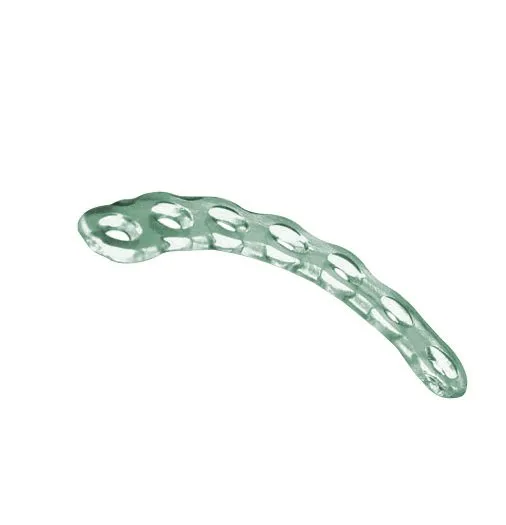

Inion - Model CPS - Bioabsorbable Fixation System
Inion´s bioabsorbable answer for cranio-maxillofacial surgery. The fixation system contains a selection of resorbable plates in different shapes and resorbable screws. The Inion CPS™ product family includes also CPS™ Baby product line. Inion CPS™ implants have been optimized in terms of handling properties, strength and degradation characteristics to support a more natural healing process. The Inion CPS™ implants are based on Inion biodegradable polymer blends which are composed of L-Lactide, D,L-Lactide, Polyglycolide and Trimethylene Carbonate (TMC). These polymers have a long history of safe clinical use.
Inion CPS System
– For adult patients’ use
– 1.5 mm, 2.0 mm and 2.5 mm systems
BIOABSORBABLE PROFILE
- Mechanical strength retention: 70% of the initial strength 9 weeks after implantation
- Bioresorption time: 2-4 years
Since their introduction in 2001, the Inion CPS™ and Inion CPS™ Baby implants have been used successfully in more than 120 000 operations by an increasing number of physicians
- The most comprehensive biodegradable plating system available – the only one comparable to titanium in its scope of use
- Quick and easy to use
- Fast screw fixation with the Inion CPS™ self-drilling bone taps and the surgical Pro-Dex Pro-Driver
- Inion CPS™ Baby implants reduce risk of growth restriction in children
- No permanent implant left in the body reducing risk of implant migration and stress shielding
- Predictable degradation progressively loads the bone to aid bone regeneration
- Non-interference with postoperative imaging (X-ray, CT, MRI)
- Addresses patient concerns about implant permanence, palpability and temperature sensitivity
- Avoidance of removal surgery, reducing patient trauma and cost
- Unlike other biodegradables, the implants are suited for all CMF areas, both adult and paediatric patients, including:
- paediatric craniofacial trauma and reconstruction
- fractures and reconstructive procedures of the cranium
- orthognathic surgery and trauma of the midface and maxilla
- fractures and osteotomies of the mandible
